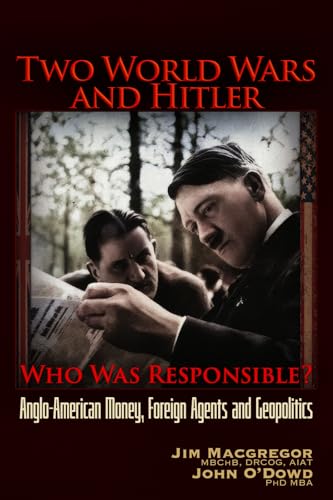
World War One: History in an Hour
by Rupert Colley
Popularity
4.75 / 5
* A book's popularity is determined by how it compares to all other books on this website.
Where to buy?
Buy from Amazon* If you buy this book through the link above, we may receive a small commission at no extra cost to you.
World War One: History in an Hour by Rupert Colley
Details
War:
World War I
Perspective:
Researcher
True Story:
Yes
Biography:
No
Region:
Europe
Page Count:
91
Published Date:
2012
ISBN13:
9780007485154
Description
Brief Summary
World War One: History in an Hour by Rupert Colley is a concise and informative guide that offers a quick yet comprehensive overview of World War One. It serves as an excellent introduction for those new to the subject or for readers who want a refresher on the key events, figures, and impacts of the war. By distilling complex historical events into a digestible format, Colley provides readers with the essential knowledge they need about one of history's most significant conflicts, all within the brief span of one hour.
Main Themes and Topics
The book covers a variety of significant themes and topics related to World War One. These include the assassination of Archduke Franz Ferdinand, the entangled system of alliances that propelled Europe into war, and the grueling trench warfare that defined much of the conflict. Rupert Colley also examines the political, social, and economic impacts of the war, providing insights into how it reshaped the world order. Key battles, such as the Somme and Verdun, are also highlighted, giving readers a sense of the scale and horror of the warfare experienced during this tumultuous time.
Writing Style and Tone
Rupert Colley's writing style is straightforward and accessible, making complex historical events understandable for readers of all backgrounds. The tone is informative yet engaging, balancing the need for detailed explanations with the brevity required by the "History in an Hour" series format. Colley effectively maintains a narrative flow that keeps the reader engaged while delivering factual content efficiently. This approach is particularly beneficial for readers seeking a clear and concise understanding of World War One without becoming overwhelmed by excessive detail.
Criticism
While the book's brevity is a major selling point, it also presents certain drawbacks. Some readers may find the lack of in-depth analysis on particular events or figures somewhat limiting. The concise nature of the book means that nuances and complexities of the war may be glossed over, potentially leaving history enthusiasts craving more detailed exploration. However, for those who prefer a succinct overview, the book successfully achieves its aim of providing a solid introduction to World War One.









